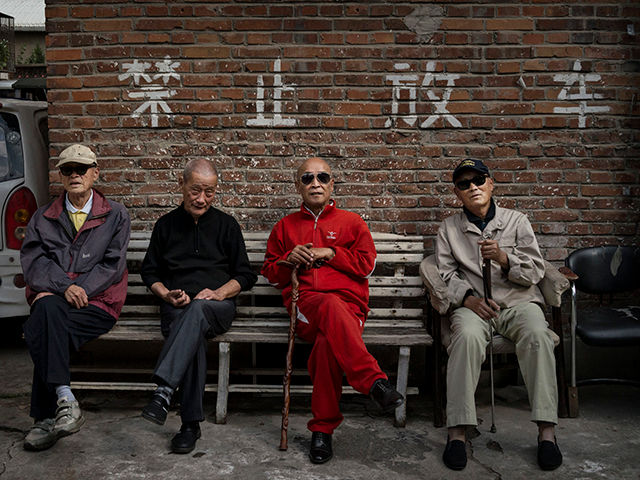China’s “White Hair” or “Silver” protesters — seniors who participated in massive demonstrations over the past few weeks against cuts to the medical benefits of retirees — are being scooped up by police in the latest regime crackdown.
Demonstrators filled the streets in the cities of Wuhan and Dalian in early February after the city governments announced “reforms” that would effectively cut the value of their health insurance benefits in half, along with increased reimbursement thresholds for doctor visits. The Chinese government seemed surprised by the intensity of the protests. Authoritarians do not like surprises.
Chinese police detain at least five people over medical insurance protests
Activist is taken away by Shenzhen authorities after tweeting video of rallies in Wuhan and Dalianhttps://t.co/J1vvj8Uy95
— CHRD人权捍卫者 (@CHRDnet) February 23, 2023
Radio Free Asia (RFA) reported on Wednesday that at least five of the leading activists involved in the White Hair protests have been arrested, including Wuhan-based activist Zhang Hai, who drew the Chinese Communist Party’s baleful attention by complaining about the death of his father during one of dictator Xi Jinping’s deranged citywide lockdowns.
Zhang found himself on the wrong end of China’s dystopian “social credit system” after filing suit against Wuhan officials, with his bank cards shut down and online accounts frozen. He was reportedly arrested in Shenzhen for joining the Wuhan protest against health insurance cuts and posting videos of it online.
Recent cuts in health insurance have angered older residents in the Chinese cities of Wuhan and Dalian, sparking large demonstrations. https://t.co/Ecq3VtLw8t
— The Japan Times (@japantimes) February 21, 2023
Zhang was arrested along with a younger protester whose crime was singing the global Communist anthem, “The Internationale,” in a manner that suggested the current Chinese government was betraying socialist ideals.
RFA’s source listed three other detainees and added, “There are probably many more than that, who have been counted.”
Some of the detainees were handed quick-and-dirty ten-day administrative jail sentences, which Chinese police can impose at will on anyone they see as a “troublemaker.” Longer sentences are sometimes imposed during the ten-day administrative hold.
A Wuhan resident told RFA the crackdown appears to have begun with longtime activists like Zhang Hai and people who drew attention to themselves by speaking with reporters.
After picking off these obvious targets, Chinese authorities have developed a “stability maintenance system” that helps them quickly swoop in and grab known troublemakers when mass protests are brewing, including people who were flagged for participating in previous demonstrations. As the old saying goes, they round up the usual suspects at the first hint of unrest.
🇳@marygao @umisrcps comments in today's @nytimes report on local governments in China cutting back health insurance. "After years of delay, the government needs to reform a social safety net that is extremely fragmented and unequal…" @umisr https://t.co/OWUQuEGWSc
— Center for Political Studies (@umisrcps) February 23, 2023
The New York Times (NYT) on Thursday pointed out that the White Hair Protests have thus far been a city-by-city phenomenon, unlike the huge nationwide protests that finally brought an end to China’s coronavirus lockdowns in December.
Deflating municipal funds are prompting benefit cuts, so each city devises its own cost-cutting measures, and some cities are in much worse shape than others. Besides Wuhan and Dalian, the other city that has seen demonstrations so far is Guangzhou, and its protesters were not quite as angry as those in the other two cities.
Although the Chinese government denies that the cost of Xi’s coronavirus lockdowns precipitated the health insurance crisis, those expenses were indisputably a factor, along with China’s demographic collapse (which leaves fewer young workers to cover the cost of each retiree) and the ongoing real estate crisis (which is choking off the major supply of municipal tax revenue).
“Three-quarters of China’s population of 1.4 billion — farmers, migrant workers and others in low-wage occupations as well as children — don’t have personal health accounts and must rely on bare-bones coverage known as residents insurance,” the NYT noted, presaging further unrest if more municipalities implement cuts like Wuhan’s.
Some older Chinese city-dwellers told foreign reporters they resented having to bear the burden of benefit cuts after working so hard, during more difficult times, to build the wealthier China of today. Notably, the seniors who expressed this criticism did so anonymously, because they feared retaliation.

COMMENTS
Please let us know if you're having issues with commenting.